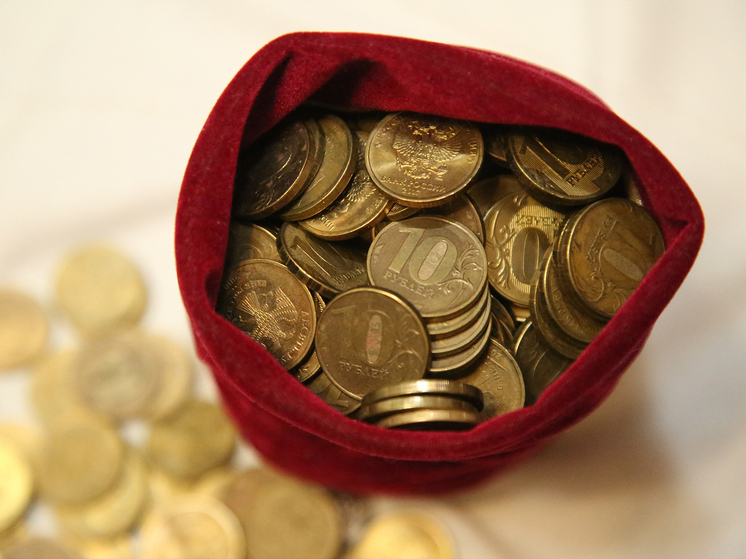
Special Bank Accounts and Deposits for Low-Income Citizens Launch in Russia on July 1.
In July, Russia will introduce new banking products for certain categories of citizens: a social account and a similar deposit. This initiative is a new measure aimed at assisting the poor. The maximum amount for such a deposit will be 50 thousand rubles, with a term of one year. The interest rate will be determined individually by each bank but must be the maximum rate offered by that credit institution. Experts and financiers discussed how this new financial instrument will function and whether it will be popular among depositors.

Banks will open social accounts and deposits upon request from citizens receiving social support measures. Information about these measures should be available on a special digital platform. Agreements will be processed electronically via the `Gosuslugi` portal.
Notably, banks are prohibited from refusing clients who meet the social support criteria from entering into these agreements. The only exception is when a citizen requests to open a second social account (or deposit) while the first one is still active. However, individuals can hold one social deposit and one social account simultaneously.
Systemically important banks will begin opening these new accounts and deposits on July 1, 2025, while other credit institutions will follow from January 1, 2027. A maximum of 50,000 rubles can be placed in such a deposit. Foreign currency cannot be deposited, and contracts cannot be concluded in favor of a third party. The interest rate must be equal to the maximum rate offered by the specific bank for standard retail deposits with a term of up to one year, inclusive. Interest should be accrued and paid monthly by transferring it to another account chosen by the citizen.
The deposit term is one year. The contract will include the possibility to extend it for the same period if the citizen is still receiving social support measures at the end of the initial term.
Starting July 1, banks will be able to offer special deposits for recipients of state support – so-called `social deposits`. The maximum amount is limited to 50 thousand rubles, and the interest rate is set by the bank.
Thus, the government continues to introduce targeted social measures. Deposits with small amounts and potentially higher yields will allow those receiving benefits or other assistance to save money. Banks can also use these products to expand their base of loyal customers.
Overall, the outcome for the new financial instrument is expected to be positive, although it is unlikely to be particularly noticeable within the structure of other banking products.
In our opinion, social deposits have been needed for a long time and even require some social `advertising,` as many people with low incomes prefer to spend money, not being too confident in their ability to create a profitable `financial safety cushion.` Starting July 1, deposits specifically designed for low-income citizens will appear, aimed at slightly changing their mindset and proving that saving money in a reliable bank is not only safe but also profitable. While interest rates in the country are high, everyone, regardless of income, should take advantage of this and set aside a portion of their, even small, income for the future to build a reserve of funds `for a rainy day`.
The downsides of the innovation so far seem to be that the interest rate on such deposits will be determined by the banks themselves, and it`s not guaranteed that they will offer social deposits at a truly beneficial rate exceeding inflation. Furthermore, these deposits might not be very profitable for the banks themselves, as they will incur additional obligations to pay interest, and the amounts people deposit will be very small.
A social deposit is more advantageous than a classic deposit not necessarily in its rate, but in its calculation mechanism: by law, the bank must offer the same maximum annual yield as it does for its regular deposits with terms up to one year. Currently, major banks pay 18-23% annually on six-month deposits, and this is the upper limit that a client from the eligible category will see in the contract. The downside is that only 50 thousand rubles can be held in the account, so the absolute income is limited, and the product is primarily interesting as a `financial safety cushion` for the poorest households.
Starting July 1, the launch of social deposits is mandatory for all systemically important banks. Each will simply give the preferential deposit its own marketing name. Other credit institutions will join only from January 1, 2027. Application is only possible through `Gosuslugi` with an electronic signature; the bank is not allowed to refuse if the client is registered in the social support system and provides proof of state support measures.
Money in a social deposit functions like in a savings account: it can be replenished (not exceeding the 50 thousand ruble limit) and partially or fully withdrawn at any time without recalculating interest; accrued income is transferred monthly to a chosen card. Therefore, if urgent expenses are needed, the client simply withdraws the required amount and continues to receive the same rate on the remaining balance.











